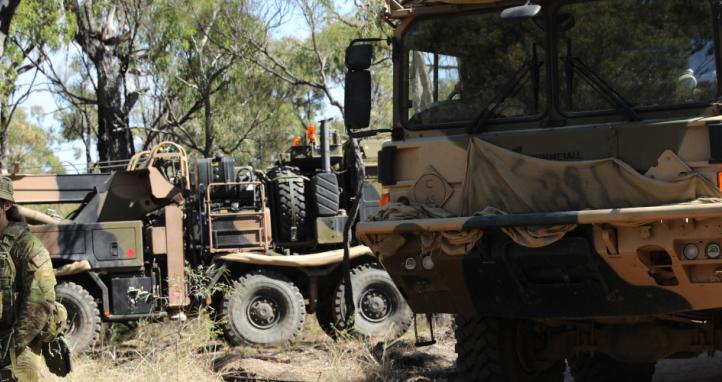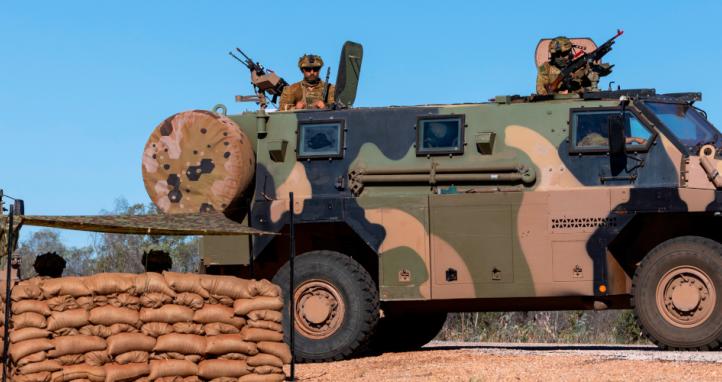Introduction
The importance of multi-skilling soldiers across the broad spectrum of employment specifications within employment category number (ECN) 296 Unit Quartermaster (QM) cannot be overstated. Its relevance increases with the future merge of ECN 296 Quartermaster and ECN 298 Supply Chain to ECN 104 Distribution Operator. It is critical for the QM trade to train their soldiers in the myriad of skills required at the earliest point in their career to better enable future dependencies and the soldier’s career progression.
Middle management’s staunch resistance to do so is often met with a Tayloristic approach of management: where speed and productivity are achieved through repetition. [1] The ability for individual problem solving and the flexibility to job share is problematic when challenged with manning shortfalls or high tempo periods. This can be to the detriment of the quality of supply support given to a unit, specifically within combat support unit environments. Multi-skilling better prepares the soldier to enable the dependent unit whilst maintaining flexibility, sustainability and survivability in fast changing environments. [2] Moreover, it fully supports the Chief of Army’s guidance outlined within An Army in Motion [3].
The role of unit quartermaster personnel
The unit quartermaster employment specifications within the Manual of Army Employment [4] are a diverse range of tasks including: undertaking, supervision or management (rank dependent) of stores, equipment, finance, regulation of technical integrity of land material, corporate governance and a requirement to drive and maintain a variety of Army vehicles. The progression from private (PTE) soldier to corporal (CPL) does not necessarily involve the soldier being technically savvy, experienced or prepared for the next level. Seldom does a unit quartermaster storeman get the opportunity to gain experience in all facets of their trade let alone apply them. But they are expected to be able to demonstrate these specifications with efficiency upon promotion to CPL nonetheless.
From experience, two 'common faults' in the day to day management, training and mentoring of QM soldiers occurs:
- 'It is quicker to do it myself',
- And conversely, the proficient JNCO/SNCO has the enthusiasm to train and mentor but is re-directed by management due to conflicting views on what constitutes soldier proficiency.
Neither of these mentalities consider the trade or the soldier. When scientific management styles such as Taylorism are applied to other ranks within the QM trade, and the focus remains on speed and productivity, the proficiency of a soldier is categorised. They are limited to a singular job profile and they are further constrained by inexperience in their other corps functions. Consequently, this apathetic management approach and disregard for a soldier’s career profile also triggers identity confusion: a capability is potentially identified as (and dependant on) a singular person. In a team driven environment, this is not viable or sustainable for the member or the team. Generally, this results in the disenfranchised soldier’s submission for discharge.
The lack of whole of trade knowledge becomes clearly evident at the sub unit quartermaster level. With the company, squadron or battery quartermaster positions now being predominantly held by a JNCO, limited experience of trade skill has the potential to have an adverse effect on sub unit support and the soldier themselves. All too often it can be seen, especially within the arms corps, that unit quartermaster staff are not prepared and ill equipped with the knowledge, skills and time management required for the tempo that comes with the position. Single job focussed soldiers who (through no fault of their own) have been promoted into sub unit quartermaster positions have struggled to meet the criteria or tempo. We have failed them. They are not future ready.
Developing unit quartermaster personnel
Soldier development is usually addressed by allocating corps specific training within unit battle rhythms. However, it is common to reallocate these training times as catch-up periods whilst the dependency unit is otherwise indisposed. Opportunities to further the trade knowledge of the soldier are often disregarded with additional tasks claiming higher priority. Training is subsequently deferred under the common misconception that training will occur when the individual needs it. This mindset must change if we are to produce resilient, multi-skilled, competent and experienced soldiers. Furthermore, it must be understood that achieving a flexible and experienced team far outweighs the initial time and effort invested in their cross training and multi-skilling.
Training and proficiency cannot begin and end within the training establishments. It must be carried out in the workplace to achieve a balanced, efficient, professional and ready capability. ECN 104 will require a multidimensional approach to tasking. How are we to expect the soldier to appreciate the finer workings of the merge of two ECNs and multiple vehicle codes if we cannot give them an appreciation of all specified tasks within their current trade? Each soldier must be relevant. Rotation of staff through the many sub-disciplines in the trade further ensures competence, currency and a healthy level of ‘in-house’ competition. Of course, when adopting the multi-skilling approach to training, equilibrium must be achieved to effectively manage fatigue and burnout.
Leaders must consider keeping QM staff engaged and motivated by casting a vision: an introduction to the bigger picture. Multi-skilling defies the mechanical scientific management approach and returns a human element to employment creating both personal and job satisfaction. It also serves to prepare the soldier for the future ECN 104. With this type of management style, recognition of a soldier’s abilities can fulfil a certain profile for success within the QM trade. The success of a military organisation should not be dependent on individual performance but on the performance of the collective group. Multi-skilling and cross training soldiers will assist in building a resilient, adaptive and contemporary trade. It is time to concede that, 'our people must have the right training and understand how their part contributes to the ultimate end goal'. [5] Good Soldiering promotes a vision of an Army that is Ready now, Future ready – it’s time to meet that intent.









